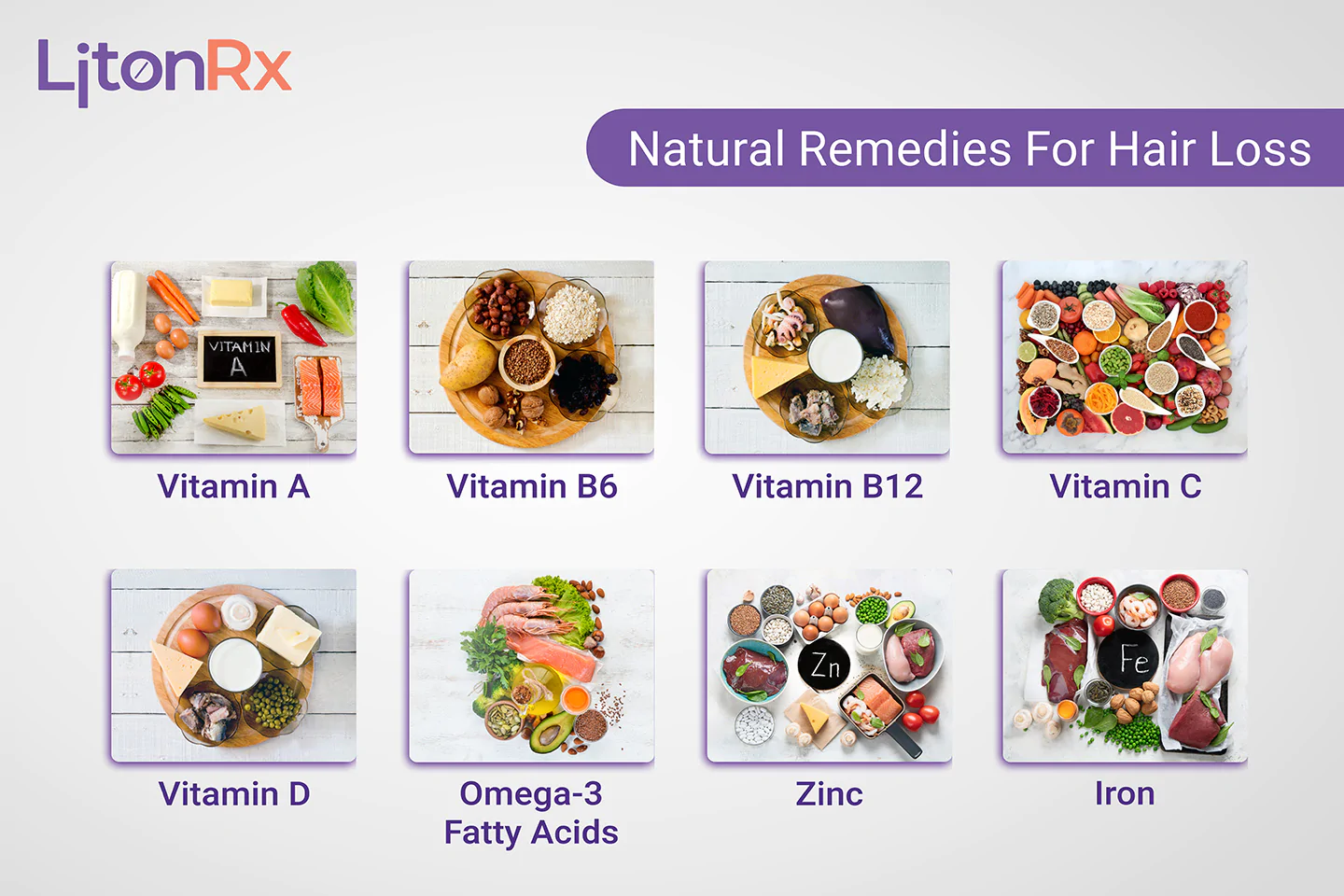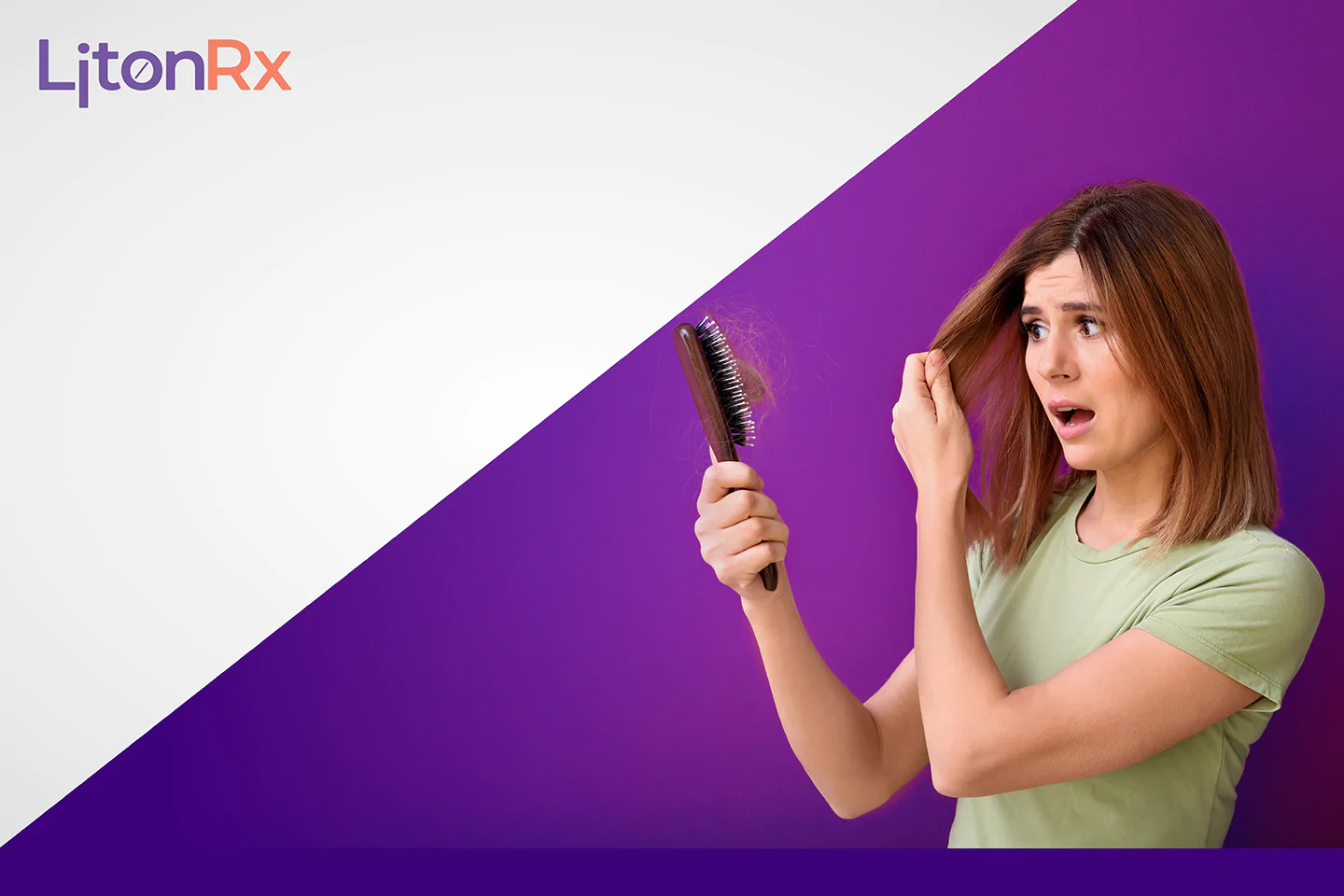A healthy, balanced diet is one of the main factors that affect the health and growth speed of your hair. Similarly, hair supplements can do wonders, particularly if you want your hair to grow fast.
Although hair is mostly made up of protein, it also requires vitamins and minerals for growth. Except for factors such as genetics, age, and hormonal imbalance, dietetic deficiencies also affect hair growth. It is not always possible to obtain all the nutrients our hair or body requires through food only.
Strong and gorgeous hair is anyone’s desire but achieving it is quite hard. Hair treatments like hair transplant, PRP treatment and other superficial hair growth processes may not be sufficient for your hair strands to grow. For hair growth, one of the most vital things to consider is diet rich in hair growth vitamins.
In such conditions when the body lack nutrients, hair supplements work as a substitute. These supplements can assist nourish your hair really well, which results in your hair grow stronger, longer, faster, and thicker. It can improve the condition and length of your hair as well as the appearance of your skin and nails.
People can also depend on vitamin supplements or on a diet rich in hair growth vitamins to grow their hair faster. Diet has always been proved to be the best option. But, for people with strict routine who are not capable to follow the dietary practices, supplements make sure optimal intake of minerals and vitamins.
Hair Loss Remedy at Home
- Over-treating your hair. This includes colour treatments, relaxers, perms, and more.
- Applying harsh hair products. Temporary colour, hair hold sprays and gels can also be harsh for your hair.
- Tying your hair tightly. Wearing hair up in a ponytail can break it from the follicles, causing thin spots with the passage of time.
- Experiencing uncontrolled stress. Stress is associated to an uptick in hormones. Too many stress hormones may destroy new hairs that are trying to grow.
Vitamin A for Hair Growth
This is a vital vitamin for all cells in our body, which also include hair cells. This is one of the most excellent vitamins for hair growth and volume. It helps in generating the natural oil sebum that moisturizes our scalp and helps in maintaining our hair healthy. Vitamin A also has antioxidants that nourish the scalp and avoid the hair from dryness.
However, ensure that you don’t consume excess of this vitamin, because it is fat-soluble and your body cannot wash it out easily. Studies have proved that an overdose of vitamin A can also add to hair loss. So keep a measure of your daily intake of this vitamin.
Drink carrot juice every day for fast hair growth as carrots are an excellent source of vitamin A. Other food sources are liver, sweet potatoes, kale, spinach, milk, dried apricots, mangoes and dark leafy greens. Vitamin A can also be found in animal products such as eggs, milk and yogurt. Cod liver oil is a particularly excellent source.

Hair Growth Vitamins
The best hair growth vitamins are Biotin and Niacin.
Biotin, a hair Growth Vitamin
Biotin is a great B-vitamin in hair supplements, which is also known as hair growth vitamin. It makes your hair thicker, repairs fragile hair and improves its texture and health. Daily consumption of biotin is essential to make sure healthy hair and it is a water-soluble vitamin. Biotin gives the following benefits:
- A fast increase in the growth rate of your hair
- Strengthening of hair
- Thicker hair
Food items that are loaded with Biotin are avocados, mushrooms, eggs, salmon, yeast, peanut butter, cauliflower, bananas, raspberries, walnuts, almonds, soybeans, sunflower seeds, lentils and whole grains among others. These will help you get additional of this nutrient to boost the thickness of your hair and have dense, longer hair.
Niacin for hair Loss
Niacin is one more vitamin from the Vitamin B family that is responsible for re-hydrating and nourishing the scalp and assist the hair follicles to generate stronger strands of hair. The key function of this vitamin is to change carbohydrates into energy, and it also helps to uphold the structure of the blood cells and improve blood circulation, which results in better blood flow to the scalp, plus more nutrients and oxygen to the hair follicles.
Niacin is also known as nicotinic acid or Vitamin B3, and its insufficiency can result in dull, breakable hair. So, it is important that you consume a sufficient amount of niacin from foods or through supplements. The suggested daily amount of niacin is 16 mg daily for men and 14 mg for women. Green peas, tuna, turkey, chicken breast, avocados, peanut and mushrooms are loaded with Niacin
Folic Acid for Hair Loss
It is also known as B9. Folic acid aids in tissue regrowth and improves blood circulation, which helps our hair follicles to function properly. Folic acid makes your hair shinier and thicker. It increases healthy cell generation and thus, it encourages natural hair growth in both women and men.
Foods rich in folic acid are cereals, whole wheat grains, all the citrus fruits and leafy green vegetables, dried beans, French beans, capsicum and broccoli.
Other B Vitamins and Hair Loss
Other than biotin and niacin, there are other B-Vitamins that are essential for hair growth. They encourage cell growth and division, give extra support to healthy hair and help it uphold lustrous integrity. They help in producing red blood cells, which take oxygen and nutrients to the hair follicles and scalp, which is a significant process for hair growth.
Food sources that contain B-vitamins such as B6 and B12 are pistachios, sunflower seeds, whole grains, dark leafy greens and almonds milk. Furthermore, animal food sources such as fish, meat, and lamb are also good sources of B vitamin.
Is Vitamin C good for hair growth?
Collagen is a significant protein for thickness and hair growth and Vitamin C can offer that. This hair growth vitamin can avoid greying and hair dehydration efficiently.
It is also a vital antioxidant that is good for our health and avoids damage to the hair follicles caused by stress. Furthermore, Vitamin C prevents the production of the bald-headedness protein DKK-1 which is there in people who experience hair loss.
Lack of Vitamin C can result in weak and fragile hair that is prone to falling out. Like biotin, Vitamin C is a water-soluble vitamin, and daily consumption of this vitamin through food items or supplements is essential to keep the hair healthy.
Citrus fruits such as sweet lime, lemon, mandarin, strawberries, blueberries, kiwi, pineapple, grapefruit, and oranges are loaded with this vitamin. Other Vitamin C-rich foods are spinach, peppers, winter squash, and tomatoes.
Role of Vitamin D for Hair Growth
Low levels of vitamin D are associated to alopecia, a technical word for hair loss. Research also proved that vitamin D may help generate new follicles — the small pores in the scalp where new hair can grow.
That said, most individuals don’t get sufficient amount of vitamin D and it may still be an excellent idea to increase your intake.
Your body generates vitamin D through direct contact with the sun rays. Good dietary sources of vitamin D are cod liver oil, fatty fish, some mushrooms and fortified foods.
Omega-3 Fatty Acids for Hair Growth
Omega-3 fatty acids are vital fatty acids that are excellent for our health as well as our hair. It can protect and nourish our hair and facilitate in re-growth. They add a glossy shine to our hair.
Omega-3 fatty acids are responsible for a healthy cell membrane that helps in the well-organized transfer of nutrition to the hair cells. If you go for supplements as a replacement for this fatty acid, then search for one with the highest amounts of DHA and EPA, as they are the active components in the fatty acid.
Natural foods having Omega-3 fatty acids include salmon, mackerel, cod liver oil, oysters, herring, sardines, chia seeds, flax seeds, walnuts and soybeans.
Zinc for Hair Growth
Zinc plays an important role in hair tissue repair and growth. It also keeps the oil glands around the follicles to work properly. Hair loss is a common indication of zinc deficiency. On the other hand, there are some unreliable sources that report that supplementing with over-dose can also contribute to hair loss.
Therefore, it may be preferable to get your zinc from whole foods. Foods high in zinc are oysters, spinach, beef, wheat germ, lentils and pumpkin seeds.
Iron For hair Growth
Iron facilitates red blood cells to carry oxygen to our cells. This makes it a key mineral for many bodily functions as well as for hair growth.
Iron deficiency causes anemia, which is a major cause of hair loss. It is particularly common in women. Foods loaded with iron are clams, eggs, oysters, red meat, lentils, and spinach.
LitonRx
LitonRx is an online pharmacy in Arizona that provides a wide range of prescription medications at affordable prices. You can get your prescriptions online and have them delivered right to your doorstep.

